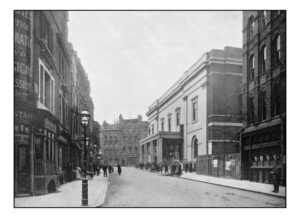Paul Mandell’s first blush with events was as a lawyer attending big trade shows and small events. Later, he joined the business community and became engaged with events as a vendor. He began brainstorming an events model that might work better for vendors and attendees. So, he sold his company and began exploring a new business idea. He launched Consero in April 2010. In December of that year, Mandell and a small team held their first event—a small, invitation-only conference for high-level senior executives and sponsors who meet, discuss, learn, and network. The format was well-received. Consero put on seven events in 2011 and 13 in 2012 and will organize at least 23 this year. Most of Consero’s two-day forums focus on role-specific legal subject matters and other corporate functions, and they take place at venues and resorts nationwide and in Europe. Mandell talked with Collaborate about his events model, lessons learned, and the company’s future.
Tells us about your events model. What makes it different?
A few differences at our events help us deliver the value we promise to participants. The first is that we keep events small. We’re going to have less than 100 attendees at an event; we have about 40 to 60 executives. One of the challenges I experienced as an attendee was that I would get to know a bunch of people but would only interact once or twice, and I needed to develop a rapport. We keep everyone together. We do meals together. We make concessions together. We generally don’t have many concurrent sessions. We support the group together as best we can. We also have smaller roundtable discussions called knowledge bridge discussions, where 12 to 15 executives discuss one topic or specific question related to something they all work on. They get into the weeds on the topic. It’s valuable in delivering knowledge and best practices and developing relationships. We also match our sponsoring partners with attendees if there’s a mutual interest in meeting. We developed internal software that helps identify mutual interests and sets pre-arranged sessions. You will only be happy if you remember the right solutions for providers or the audience.
What role do you play in organizing the events?
I need lots of training or expertise to learn by watching and doing. Fortunately, we have a strong team of meeting professionals to help build events on the logistical side and work with venues and vendors to make the events successful. Putting on an event—even a small one—is very demanding. It takes a lot of organization and discipline to ensure things don’t slip through the cracks.
What are a few things you’ve learned since you launched Consero?
We’re for-profit, so we’re very sensitive to price and cost. We’re always looking for favorable rates and menu prices, and we’ve learned it’s essential to approach negotiations seeking a win-win relationship. If you’re ultimately going after the lowest possible price, you won’t end up with what you were looking for from a quality perspective. We’ve also learned about the value of some resources in the meeting planning industry. CVBs have been immensely helpful in many ways. We’ve gotten help from third-party hotel representatives by leveraging resources. With that knowledge, experience, and bandwidth, you can take a relatively small team and dramatically increase productivity and information-gathering to become way more productive.
What’s your favorite part of this new endeavor?
Everyone here sees the value of our mission. We’re trying to deliver knowledge, create networks, and improve the professional experience of lots of people. We know the impact, and we take a lot of pride in the result of our events. I’m happiest when I’m reading evaluations [from people] who say they learned a lot and developed great relationships, and [our events are] the best use of their time. One of the things lost in a technology economy is the importance of meeting face-to-face and meeting new people; we help facilitate that, so we’re proud of that.
How difficult was it to recruit executives for that first event?
It was a real challenge. There are many other competing events, and there are always different ways for these executives to spend their time. It was a real struggle to get traction. A leap of faith was required on their part. Now, referrals are essential. The best sales pitch we can make relies on our execution of prior events. By running a very smooth event and generating a happy group of participants, you make building the next one a lot easier.
What kind of destinations and venues do you use?
One of the lessons we’ve learned is it’s essential to match the venue to the participants. Some groups expect very high-quality and fancy venues; others have much less interest in whether it’s a four- or five-star property. It’s also essential to have a platform with a layout that’s conducive to what you’re trying to accomplish. Suppose you want to keep everyone together and make the event intimate; the venue matters. We’ve enjoyed working with PGA National [in Palm Beach Gardens, Fla.], Paradise Point in San Diego, and various others. We’ve also enjoyed The Boulders resort north of Scottsdale, Fairmont Scottsdale Princess, and Carefree Resort [in Carefree, Ariz.].
What does the future look like for you and your company?
When we started our business, the economy was weaker than it is now. It’s still a buyer’s market, but room rates have begun creeping up. That requires us to be more creative in getting more value without ruining our budget. We’re also seeing more willingness of executives to travel. That correlates to an increase in demand. We’re a startup, and we’re still new to the industry. But as someone who started as an outsider, I recognize the value of live, in-person, face-to-face events. What we’re doing and what other meeting professionals are doing is essential. What powers the economy and helps with corporate and government growth is sharing best practices, getting to know your peers, and attending events.


Average Rating